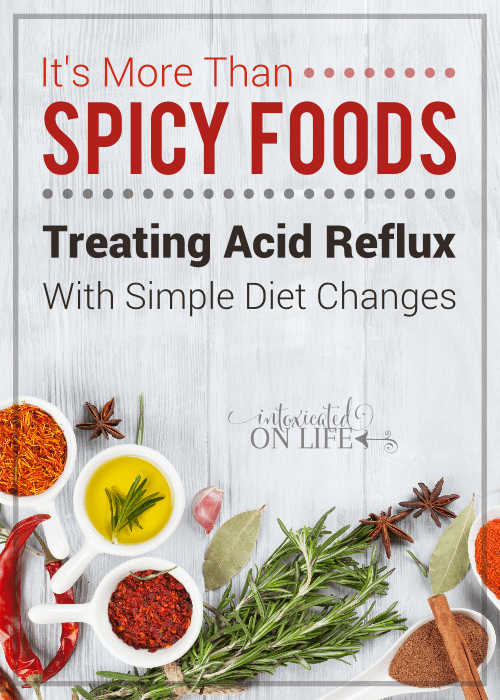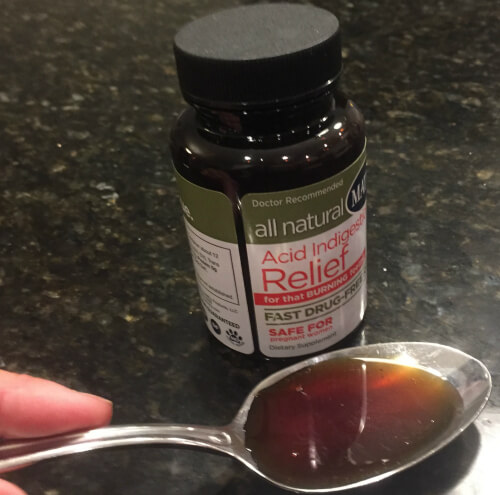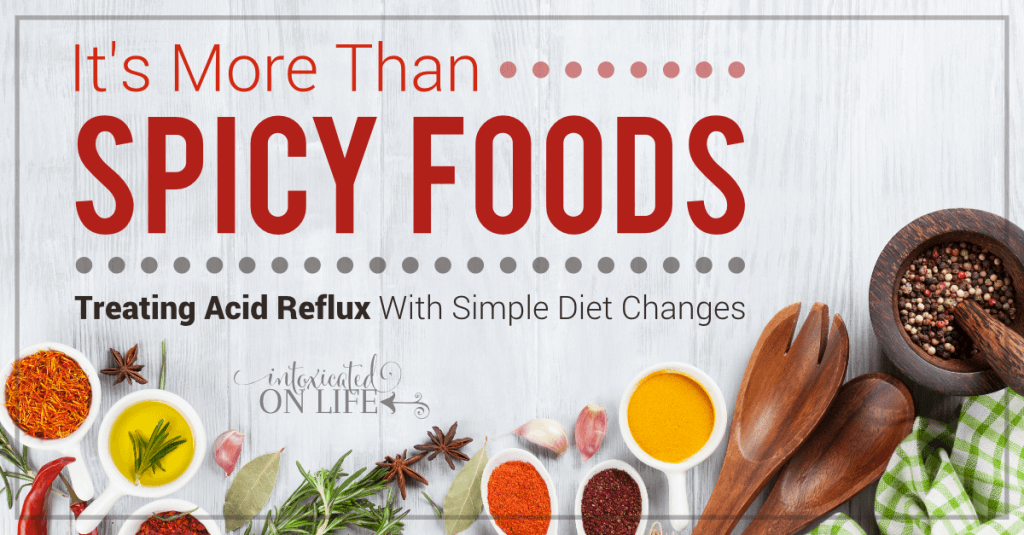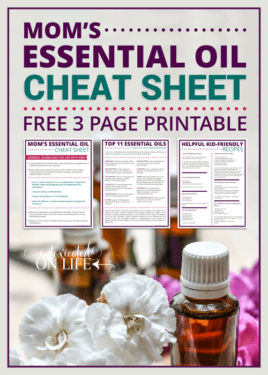True or false: Acid reflux (heartburn) is ultimately caused by having too much stomach acid.
If you thought “true,” you might be thinking of the antacid commercials where we see a cartoony diagram of a stomach slowly filling with acid until it starts to come up through the esophagus and into the back of the throat.
But if you said, “true,” you would be wrong.
Don’t take my word for it. An editorial published in the journal Gastroenterology stated it pretty clearly:
Treating gastroesophageal reflux disease with profound acid inhibition will never be ideal because acid secretion is not the primary underlying defect.
When acid reflux is out of control…
For some people, acid reflux strikes very infrequently after eating spicy foods or eating too close to bedtime. For me, for a period of about a year, acid reflux seemed to strike all the time.
The problem got so bad, I even had scarring in the back of my throat and was unable to talk without agonizing pain for several days.
My doctor prescribed a fairly popular over-the-counter antacid medication. I was expecting it to do the trick, but I was surprised when it only got worse. I now know this is because these medications don’t address the underlying problem.
So, what are the underlying causes of acid reflux?
In the more serious cases of constant acid reflux, doctors know it is caused by intra-abdominal pressure (IAP). In layman’s terms, this means the stomach is so bloated it pushes stomach acid through the lower esophageal valve (the muscles at the low end of the esophagus, where it meets the stomach).
So, the million-dollar question is: what causes intra-abdominal pressure? While there can be many factors, the primary causes of IAP are most often:
(1) an overgrowth of bacteria in the stomach, and
(2) carbohydrates not being digested properly.
Both of these happen when the pH of our stomach is unbalanced. As we age, the acid in our stomach becomes more alkaline (i.e not as acidic), which means the acid doesn’t digest our food properly and doesn’t kill the bacteria—thus creating the pressure and the acid reflux.
Address these underlying causes and you can dramatically reduce or even eliminate acid reflux. Here are several ways to do this…
1. Help out your stomach with apple cider vinegar.
That’s right. By adding something acidic to our stomach, like apple cider vinegar, we lower the stomach’s pH and thus help our body do what it needs to do.
Use apple cider vinegar before you eat. Take about a tablespoon and chase it with just a small sip of water. This will help balance the pH of your stomach.
Apple cider vinegar can also be helpful if you’re experiencing acid reflux and need a quick remedy. Whenever acid reflux strikes, I take about one or two tablespoons, followed by a sip of water.
A lot of people can’t stand the taste of apple cider vinegar, so I highly recommend you use Maty’s All Natural Acid Indigestion Relief. It contains whole-food ingredients like apple cider vinegar, but because it also contains sweeter ingredients like ginger and honey, the vinegar taste is largely hidden. It’s actually quite delicious and it’s a great way to relieve the pain of reflux without medications or side effects.
2. Help out your stomach by taking digestive enzymes.
Stomach acid does not break down the food you eat as much at it prepares that food to be broken down by something called digestive enzymes. Digestive enzymes are important because they break down protein and sugars like gluten, casein, and lactose, and because without this breakdown undigested food can create IAP (and thus, acid reflux).
However, the more alkaline (non-acid) our stomach acid gets, our pancreas isn’t triggered to release the digestive enzymes we need. Furthermore, our bodies don’t naturally create every enzyme we need to digest our foods. Instead, we receive some of those enzymes through the foods we eat.
You can get a lot of the enzymes you need by eating raw foods. In their raw state, foods like avocados, sprouts, grapes, figs, dates, bananas, kiwis, mangos, papaya, and olive oil (unrefined) are excellent sources of enzymes. Raw honey, especially manuka or buckwheat, also contains many enzymes that aid in digestion. (Honey can also be very soothing on your throat after a bout of acid reflux, which is why natural indigestion relief products like Maty’s are really helpful.)
You can also create more enzymes in your body by chewing thoroughly. This is one of my biggest flaws. I usually eat way too fast. Saliva in the mouth contains important enzymes for digestion, so the more you chew your food, the better.
You can help the enzymes in your body by avoiding foods that contain enzyme inhibitors. Foods like nuts, legumes, seeds, and grains, while they are enzyme-rich, they also contain enzyme-inhibitors. If you eat these foods, it is best that they are first traditionally soaked, sprouted, or lacto-fermented.
You might also consider taking a digestive enzyme supplement. Especially in the initial stages of healing your gut and fighting acid reflux, taking an enzyme supplement can be very helpful. Find supplements that are whole-food-based and don’t contain fillers. Once the acid reflux is under control, these supplements will no longer be needed as you should be getting most of your enzymes from food.
3. Help out your stomach by taking digestive bitters.
Bitter herbs (“bitters”) have been used for millennia to improve digestion. This is because bitters trigger your body’s release of digestive enzymes as soon as they hit the tongue.
Start your meal with bitter greens. Greens like arugula, beet greens, chard, collard, kale, mustard greens, spinach, and turnip greens are great choices.
Take a tincture of bitters before a meal. There are a variety of tinctures you can purchase.
4. Help out your stomach by taking HCL with pepsin.
In persistent cases of acid reflux apple cider vinegar, digestive enzymes, and bitters may not be strong enough to balance stomach acid. In these cases hydrochloric acid (HCL) with pepsin (a digestive enzyme) can be very helpful. HCL is the main natural ingredient in the acidic environment of your stomach. Taking HCL supplements can increase this important acid when digesting food.
Take HCL caplets that include pepsin before eating a meal, or shortly after you start eating. This is especially true if you are going to be eating foods high in protein like beef or chicken. The HCL and pepsin work together to bread down the proteins.
5. Help out your stomach by avoiding liquid at meals.
Drinking liquid—especially water—during a meal will dilute stomach acid and overfill your stomach. When you drink water (which is obviously important) do it a least a half hour before eating a meal.
Drinking a little wine at dinner may help to promote digestion, but too much wine can also weaken the the lower esophageal valve (LES).
6. Help out your stomach by consuming more ginger.
For millennia, people have experienced gastrointestinal relief when taking ginger because it helps to eliminate gas (which is what causes the bloating and thus the acid reflux) and it soothes the intestinal tract.
Consume foods with more ginger. Drink ginger tea between meals. Add ginger to curries, meat, fish, and poultry and to add flavor to baked goods. If your experiencing acid reflux, taking grated ginger can also be helpful, which is why it is a key ingredient in Maty’s All Natural Indigestion Relief.
7. Help out your stomach by eating fermented foods.
While bacterial overgrowth is a major part of the problem of acid reflux, a proper balance of “good bacteria” (probiotics) in your gut is a major part of the solution. In addition to containing helpful enzymes, fermented foods contain healthy bacteria, which helps with digestion.
Add naturally fermented foods to your diet. Eat hearty amounts of naturally fermented sauerkraut and pickles. (It’s important to find the raw, fermented kind of sauerkraut, such as Bubbies or Saverne brands). Start drinking more kombucha, a fermented tea rich in probiotics. Drink more water kefir. Eat moderate amounts of yogurt and milk kefir (dairy products can be high in carbs and therefore not helpful for those with acid reflux, but a small amount of these can be helpful.)
8. Help out your stomach by (temporarily) avoiding carbs.
Since undigested carbs are part of the problem of intra-abdominal pressure, a couple of studies have shown that a low-carb diet can help when you’re trying to get acid reflux under control.
Change your carbohydrate intake for a limited time. You might try a very low carbohydrate (VLC) diet. You might also try a specific carbohydrate diet (SCD) or a GAPS diet which get rid of longer chain carbohydrates (disaccharides and polysacharides) and keeping short chain carbohydrates (monosacharides). In layman’s terms, this means getting rid of all grains, legumes, and starchy vegetables but keeping fruits and some non-starchy root vegetables (winter squash, rutabaga, turnips, celery root, etc.).
In summary…
Long term diet changes:
- Eat more fermented foods (fermented sauerkraut and pickles, kombucha, water kefir)
- Eat more raw foods (raw honey, avocados, sprouts, grapes, figs, dates, bananas, kiwis, mangos, papaya, and unrefined olive oil)
- Eat more ginger.
- Avoid enzyme-inhibiting foods like nuts, legumes, seeds, and grains unless they are properly prepared.
- Start your meal with bitter greens or swallow a bitter tincture.
- Avoid water with meals.
- Chew thoroughly.
- If acid reflux is infrequent but still present, take apple cider vinegar or a digestive enzyme supplement before meals.
Short-term diet changes while getting acid under control:
- Go on a low-carb or specific carb diet.
- Take HCL with pepsin tablets before you eat protein-rich meals.
Natural, food-based acid reflux solutions to keep on hand (for when heartburn strikes):
- Apple cider vinegar
- Peel and grate ginger. Swallow one teaspoon with a few drops of lemon juice in water.
- Mix a teaspoon of raw honey in a small amount of lukewarm water. This will soothe your throat.
- Use Maty’s All Natural Acid Indigestion Relief, which contains all of the above ingredients and other helpful nutrients. You can Find Maty’s (we pick ours up at Rite Aid or Target)!
- This is my favorite acid fighting tea I keep on hand.













Thanks so much for this info. I’ve been on a proton pump inhibitor for more than 10 years and ranitidine before that. I’m just now learning about the negative side effects of the drug (i.e. Reduced nutrition absorption among other things.). I can’t stop it cold turkey – rebound reflux – and I’m not willing to burn a hole in my esophagus, which is what would have happened if I hadn’t taken measures 20 years ago when this problem first started in my 20’s.
I am going to talk to my doctor about some kind of weaning plan, and will use your tips along the way.
Please do talk to your doctor about this, and don’t be afraid to take control of your own health in this regard: share the research with your doctor.
Another natural remedy for reflux that worked in our family is bentonite clay (specifically we use Redmond Clay, but I’m not sure that the brand matters). My husband suffered from terrible reflux and was on prescription medications for a time. We finally decided it probably wasn’t good to be on these medications long-term and started researching alternatives. He tried the clay and hasn’t looked back! He no longer experiences reflux, as I think the clay helped to restore balance to his system. Just take about a tablespoon of clay, stir into a glass of water, and drink it down! 🙂 Do this once or twice a day.
Great one to add to the list! Bentonite clay water has an alkalizing effect on the body, which is important if your stomach is making strong acids, working overtime to break down unhealthy foods. More alkalizing foods (like bentonite clay) balances the gut’s acidity, which helps to not only balance bacteria in the stomach, but also gives the body the minerals it needs to create enzymes for proper digestion.
Sounds interesting, a lot to take in and understand, how the stomach digests food. Some of things I had heard before, but good to hear someone else is saying it. My problem is I have Acid Reflux and gastritis, and no gallbladder. I have been on med for this about 12 yrs. But I still have problems. Last yr, tried coming off and got very sick, lost 25lbs. I wonder if these ideas would work for me with also having the gastritis( not taking NSAID nor do I have H.Pyloir) and no gallbladder. Thanks for the tips.
You’re welcome, Cindy!